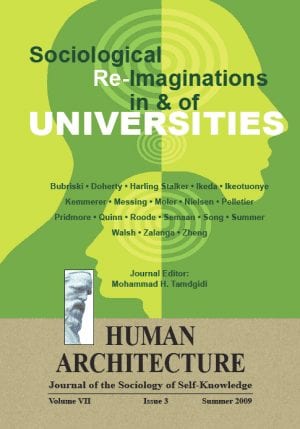Journal Article — “Without Ever Leaving the Ground, She Could Fly”: Ecofeminism and Soul Fulfillment in Toni Morrison’s Pilate — by Jessica Gama
$15.00
The concept of ecofeminism uses the age-old connection between women and nature as a bridge to strengthen both the feminism and the ecological movements which seek to end the oppression of women and nature. In today’s world as families move into the cities, away from the land, their personal relationship with nature is disconnected. This puts families in competition for material possessions.
Description
Abstract
The concept of ecofeminism uses the age-old connection between women and nature as a bridge to strengthen both the feminism and the ecological movements which seek to end the oppression of women and nature. In today’s world as families move into the cities, away from the land, their personal relationship with nature is disconnected. This puts families in competition for material possessions. As has been consistent through centuries of western history, women and nature are subdued by masculine aggression which thrives in the competition of market economies such as capitalism. In Toni Morrison’s novel Song of Solomon the ideals of ecofeminism are at work in the tension between two major characters: Pilate and Macon Dead. Gerry Brenner says that “Pilate hungers not for family dynasty, for domestic respectability, for…authority…or even for others’ regard,” and that “her heroism resides in her self-acceptance and self-content…performing routine responsibilities without fretting about whether she is ‘macon’ something of her life” (Brenner 123). Pilate is a defining example of a woman’s connection with nature as well as a model of how to live a fulfilling life outside of capitalism’s grip. Macon does not experience the same fulfillment that Pilate does in his life, he is displaced from his ancestors, he’s filled with a greed that’s never satisfied, his concern with materialistic culture omits the rights of the women in his family and the natural world that he lives off of, he’s “unmindful of [his] history of living harmoniously on the land” (hooks 107) and has no “respect for the life-giving forces of nature, of the earth” (hooks 104). It is through the contrast of these two characters, Pilate and Macon, that Morrison reinforces the value of women and nature in society. Through this ecofeminist lens, Morrison suggests that we should all analyze the value we place on certain ideals and objects of our lives.
Recommended Citation
Gama, Jessica. 2008. ““Without Ever Leaving the Ground, She Could Fly”: Ecofeminism and Soul Fulfillment in Toni Morrison’s Pilate.” Pp. 49-54 in Microcosms of Hope: Celebrating Student Scholars (Human Architecture: Journal of the Sociology of Self-Knowledge: Volume VI, Issue 4, 2008.) Belmont, MA: Okcir Press (an imprint of Ahead Publishing House).
The various editions of Microcosms of Hope: Celebrating Student Scholars can be ordered from the Okcir Store and are also available for ordering from all major online bookstores worldwide (such as Amazon, Barnes&Noble, and others).
Read the Above Publication Online
To read the above publication online, you need to be logged in as an OKCIR Library member with a valid access. In that case just click on the large PDF icon below to access the publication. Make sure you refresh your browser page after logging in.







